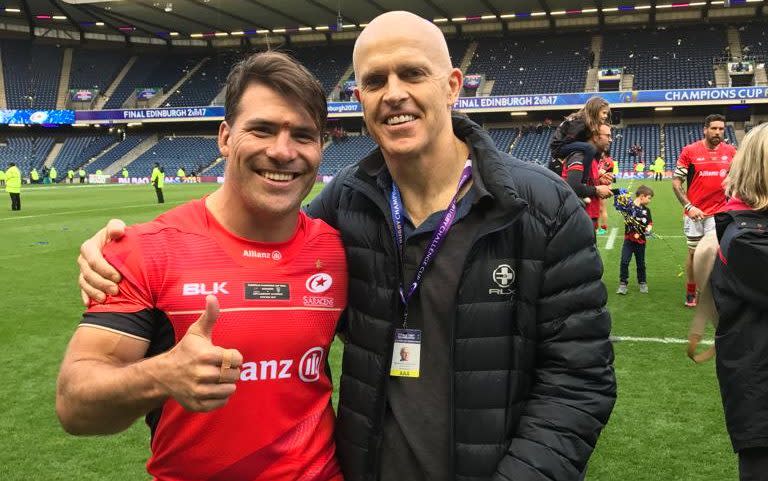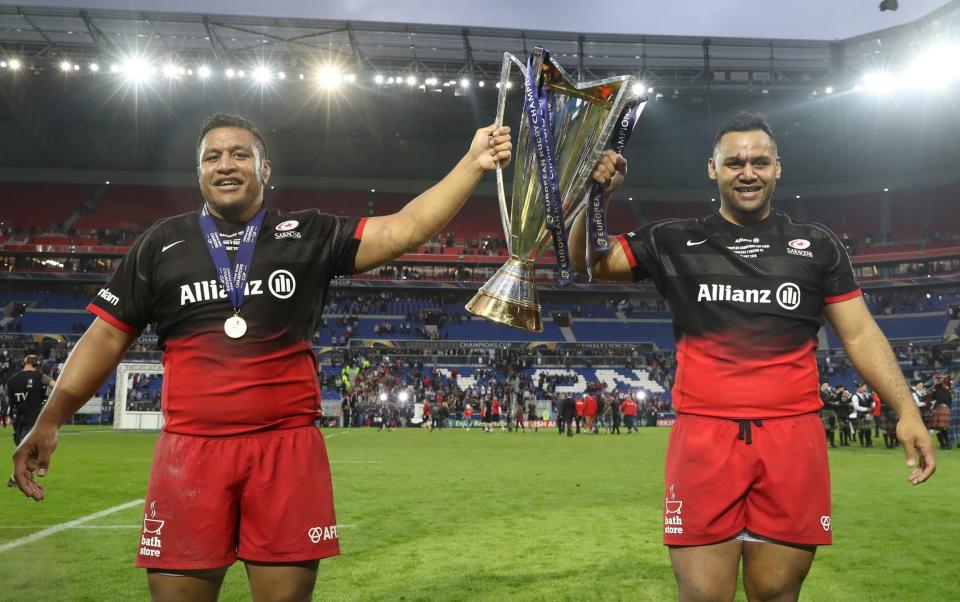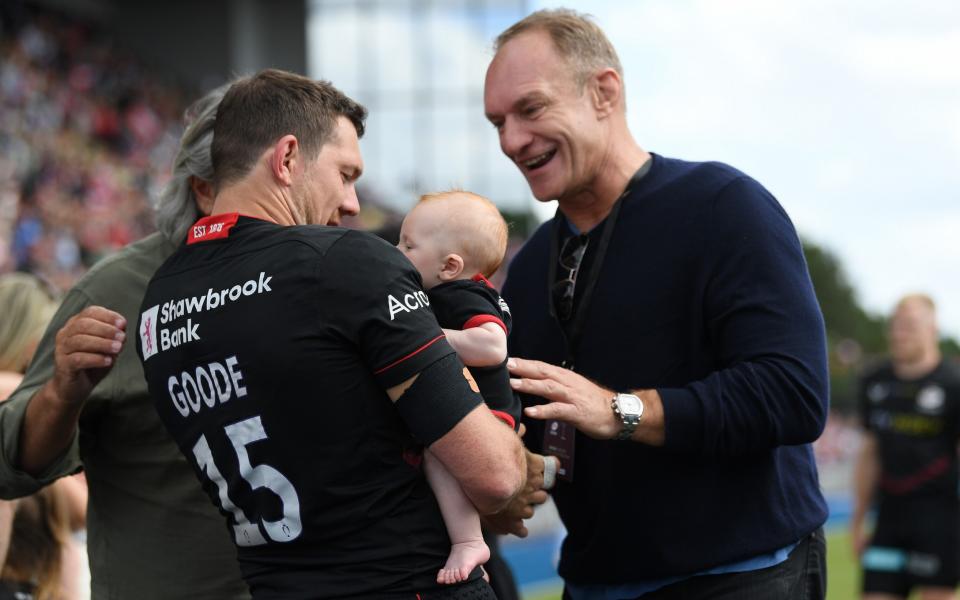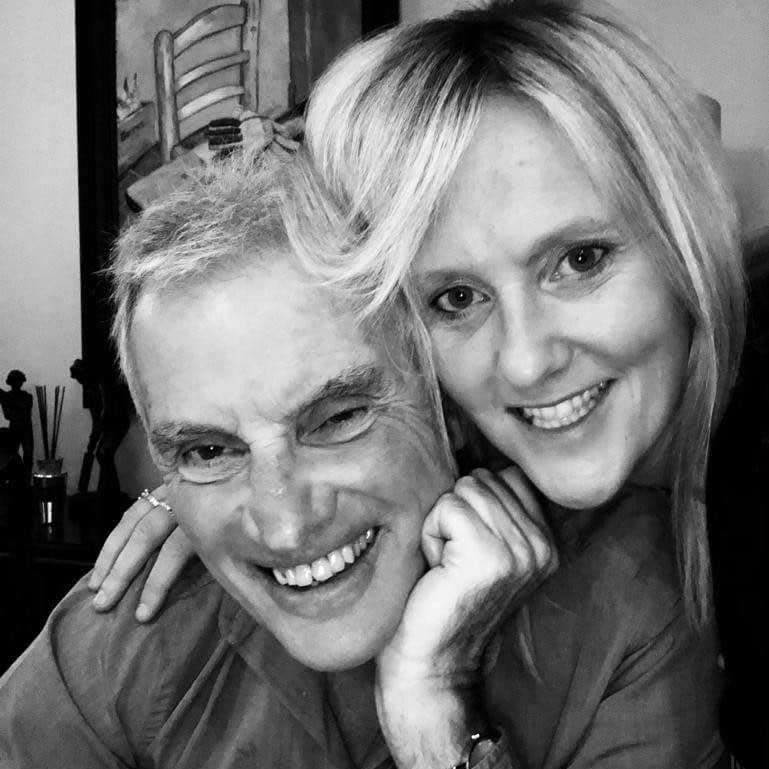Special Report: How Saracens came back from the dead – by the man who saved them

Dominic Silvester takes a deep breath. In all his years as a highly-successful insurance entrepreneur and a long-time investor in rugby union, the new owner of Saracens has never before given an interview.
An intensely private man, he has instead preferred to keep a low profile, avoiding the limelight even after his decision to buy the controlling interest of Saracens from Nigel Wray last year in the wake of the salary-cap scandal. A scandal that culminated in the club’s relegation to the Championship in 2020 and a £5.36 million fine.
Now, though, Silvester wants to set the record straight, revealing for the first time the inside story of the £32m takeover that not only brought the club back from the brink but on a road to redemption that has seen Mark McCall’s reach the Premiership final at Twickenham on Saturday in their first season back in English club rugby’s top flight.
The controversy of the salary-cap breaches has been well-documented – with a report by a disciplinary panel led by the late Lord Myners published in January 2020 revealing the club had exceeded the salary cap by around £2.1m over the previous three seasons, including co-investments with players, overspending on image rights and fees via an events company.
What has not yet been chronicled, however, are the key moments since the controversy that threatened to overwhelm a club that had previously won five Premiership titles and three European Champions Cup crowns.

“I have been asked so many times this season about what really happened, and in particular what has changed in the new ownership structure after I took the leadership role in the consortium that took control of the club following so many years of Nigel’s ownership,” says Silvester, in an exclusive interview with Telegraph Sport.
“I am not a serial interview-giver. In fact, in all my years in business, despite being asked many times, I have never once agreed to an interview as I have always valued my privacy, but I feel it is appropriate to provide some colour to the background to the deal.
“We needed to separate the old from the new. The club got some things wrong, and mistakes were made, and it must be remembered that we were found to have been reckless as opposed to deliberately cheating.
“When assessing the character of the club I think it’s important to analyse what has happened over the last two seasons. I hope that Saracens have dispelled the myth that the reason for their success was salary-cap related. Rather, it was due to the character of outstanding coaches, players, the fitness and conditioning team and every other member of the club who came together to achieve something very special.
“The club matters massively to me as there is a culture that I can really relate to and I want to help it innovate, prosper and thrive. This is a culture of loyalty, respect and togetherness. It runs throughout the club. The challenges we faced would have knocked over and finished most clubs, but the ethos of Saracens meant we stood together, regrouped, reorganised and have come out stronger.”
Silvester’s love affair with Saracens first began in 2002 after he invested £600,000, along with three others, to buy a 10 per cent stake in the club when Wray was seeking to raise £3.6m as part of an unsuccessful plan to try to ensure the club broke even.
In the furore that accompanied the revelations of Saracens’ breaches in 2019, his role became more critical. He could have walked away, but his loyalty to the club first saw him attempt to find a buyer when Wray’s involvement in the salary overspend left no option but to look for a new owner.
On hearing the tribunal’s ruling, Silvester flew from the USA to London for breakfast with a distressed Wray, who was resigned to ceding control after 26 years of ownership.

“It was not an easy time for Nigel at all but in the aftermath of these challenges he totally appreciated that the club needed change and a new face with regards to both being chairman and owner,” he adds.
“Nigel is one of the most generous people that inhabit this planet with an incredibly soft heart, and he is always looking for ways of helping people in the community and often in a totally private way and not seeking any recognition. Nigel was badly knocked by the whole salary-cap issue.
“When you have led a life as a decent man, always trying to do the right thing, to be called a cheat was painful. I felt a strong sense of responsibility to him to help restructure the ownership and board so we could never face the same challenges again.”
With the club at risk of falling apart, Silvester first turned to Neil Golding to become chairman, providing fresh leadership and the sense of a new beginning for the club’s governance.
“Neil is a trusted friend and a senior partner at Freshfields (the law firm in London) in their restructuring area and has been involved in some of the largest corporate explosions all over the world so dealing with a rugby club with a problem was not particularly daunting to him,” says Silvester.
“Having somebody of Neil’s stature and reputation sent a strong message of a new regime and top-notch governance. I cannot talk highly enough about Neil for the person he is and his contribution since becoming chairman. In my view, Neil is right up there with the likes of Brendan Venter, Mark McCall and Brad Barritt as some of the most important signings the club has ever made.
“After securing Neil’s leadership, I then helped Nigel with the negotiations to sell the club to the principals of a large US private equity fund (MSD Capital). The transaction was very close to being finalised but the deal fell apart late in the negotiations.”
It was then that the idea was first raised of Silvester taking control of the club himself. “I had lunch with Nigel in February last year and he suggested to me that I buy the club,” recalls Silvester. “My immediate reaction was to decline but after a few days, a lot of thought and conversations with some key people, I changed my mind and I agreed to buy control of the club on almost identical terms to those negotiated by the private equity fund.”
The key discussions included those who would join him in investing in the consortium – Golding, former Springbok World Cup-winning captain Francois Pienaar, Marco Masotti, the New York-based owner of South African franchise the Sharks, Nick Leslau, a property entrepreneur and former Saracens director and investor with whom Silvester has been involved in many business transactions, and business colleague Paul O’Shea.

“I wanted more than anything to help Saracens build upon some of its amazing foundations but with impeccable governance and with a sustainable business model,” he adds. “I also wanted to have fun doing it and it would not be fun to lose vast amounts of money. We are well on our way to achieving this.
“I wanted to embark on this new journey for Saracens with people I truly trusted and had a bond with. The consortium is not a group of casual rugby acquaintances but rather great friends who all have a lot to offer Saracens. Life is about great long-term relationships.
“We are all great friends who have a deep respect for each other and fully understand the challenges ahead and we are all determined to make a success of this. I was delighted that Nigel wanted to retain a minority, passive shareholding in the club. To have Nigel as a 'superfan' is brilliant as he has done so much for Saracens and for professional rugby over three decades.”
Yet the defining meeting that confirmed his decision came at the club’s training base at Old Albanians near St Albans in April last year with McCall, the director of rugby, and performance director Phil Morrow. Silvester had experienced the revolving door of coaches in the early years of his involvement with Saracens that were notable only for their lack of success, despite significant investment in the playing squad. Stability and continuity were now his watchwords.
“From 2002 to 2009 we had a succession of coaches - Buck Shelford, Rod Kafer, Mike Ford, Steve Diamond, Alan Gaffney and then Eddie Jones (now England head coach) – pretty much a coach a year and in this period of mediocrity the club skirted with relegation. Since the appointment of Brendan Venter and Mark McCall back in 2009 there has been stability on the coaching and playing side of the club and it is no coincidence that this has been a massive contributor to success.
“I looked both Mark and Phil in the eye and said to them both, ‘Are you guys going to stay around? Are we in this together?’” he recalls. “Their answer was the biggest influence in me deciding to buy the controlling interest from Nigel. I knew both could easily get jobs elsewhere and I said to them that if they see it through, then I was in. I was not prepared to make my decision until I had their answer. They both said, ‘We will see this through’. That clinched it for me. Mark and Phil both stand for what is so brilliant about this club and the culture I keep referring to.”

The resolve of that culture was tested to the full within the playing group, who held a crisis meeting at the Wicked Lady pub near Harpenden, with their England players, including captain Owen Farrell, wondering if they would have to leave to maintain their international careers when Saracens were relegated. Eddie Jones assured McCall that would not be the case and Silvester was impressed by their collective resolve.
“I also spoke to a number of the senior players and their loyalty was equally clear. Mercenaries would have left when the going got tough. Not this amazing group of players - they wanted to stick together and demonstrate the real reason why they were at Saracens," Silvester adds. "Everyone at the training ground recommitted to rebuilding the club.”
Reducing the cap and accommodating the short-term requirements of others did result in some restructuring, however.
“I was not at the front end of the discussions with the players but broadly speaking George Kruis had an exit clause in his contract and wanted the Japan experience and we were really sorry to lose him,” says Silvester.
“We were similarly upset to lose Will Skelton but that was necessary for salary-cap reasons given that the cap was coming down and Will was also offered a great deal in France. Both George and Will remain close to the club and always will do. The only player I am aware of that just wanted out was Ben Spencer and he left for Bath.
“The rest of the players such as Alex Goode, Max Malins, Ben Earl, Nick Isiekwe and Alex Lozowski were loaned out to other clubs for the period of the Championship season and they were always going to return.”
Discussions were held with the Sharks over the possibility of Maro Itoje spending a loan period with the South African franchise in Durban, where he could have played alongside iconic Springbok captain Siya Kolisi.
“We have a close relationship with the Sharks who were interested in taking Maro for a short loan period, but the discussions did not ever really amount to anything substantial as our coaches wanted Maro for the critical run-in to the season in the Championship and Maro, as a great team man, was only too pleased to oblige,” Silvester continues.
Saracens may not have the same strength in depth as they did before the salary-cap sanctions but reaching the final in their first season back in the Premiership underscores the sense that their collective spirit and camaraderie has survived the trauma of the controversy.
But what of the club’s reputation? The appointment of Lucy Wray, Nigel’s daughter, as chief executive had led to the perception that the former owner still retains an influence in the running of the club. But Silvester insists she was only appointed as he felt she was the best candidate for the job.

“I understand the possible confusion caused by these optics,” he adds. “The transaction with the private equity firm I discussed earlier was far along and they had a new CEO lined up. They were not prepared to entertain even a discussion on Lucy being chief executive for exactly that reason.
“And when the private equity deal fell apart, I recognized the potential confusion that might arise if Lucy was appointed. I have even heard it suggested that Lucy being chief executive was part of the transaction with Nigel. This is absolutely untrue – it was never a consideration in the negotiations and the only factor was deciding on what was best for the club.
“I strongly put forward Lucy’s case to be CEO as I had seen her grow massively in the role. Lucy was appointed by the new board for one reason only, and that is we felt Lucy was the best person for the job – simple as that. I am delighted to say that Lucy has totally justified our faith in her and the fact she is Nigel’s daughter is really not relevant. If anything, she too has her own point to prove.”
Silvester is keen to make his own point that the club is now a shining example in terms of complying with the salary-cap regulations. He admits that governance structures had not been robust enough under the previous regime but insists that any failures were not an attempt to deliberately cheat.
“My view has not changed since the decision in November 2019,” he adds. “The tribunal very clearly stated that they fully accepted that the breaches were not deliberate but rather they were reckless. Nigel was man enough to put his hand up and accept responsibility.
“Nigel never hid anything from anyone who could access Companies House free of charge at any time. There was no attempt to hide or deceive anyone and this was accepted by the tribunal. There is no question that the deals which were done should have been discussed first with the salary-cap manager and then perhaps this story could have had a completely different outcome. Why it wasn’t is difficult to explain and was for sure a failing in the governance structure, but not an attempt to deliberately cheat.”
A sixth Premiership title is now Saracens’ goal on Saturday, and Silvester admits the final against Leicester means more to him than the previous ones the club has been involved in.
“Yes, and just because it would be a reward for the players and coaches and many others at Saracens who have had a point to prove over the last two years,” says Silvester, who will watch the Twickenham final in the company of his close friend and fellow director Pienaar.
“The players are fearless and will be wanting to prove something at the weekend. That said, we obviously don’t have to win on Saturday to prove anything - the point has been made already by the fact the players stuck together, and win or lose, I could not be prouder of this incredible group.”

 Yahoo Sport
Yahoo Sport 





































